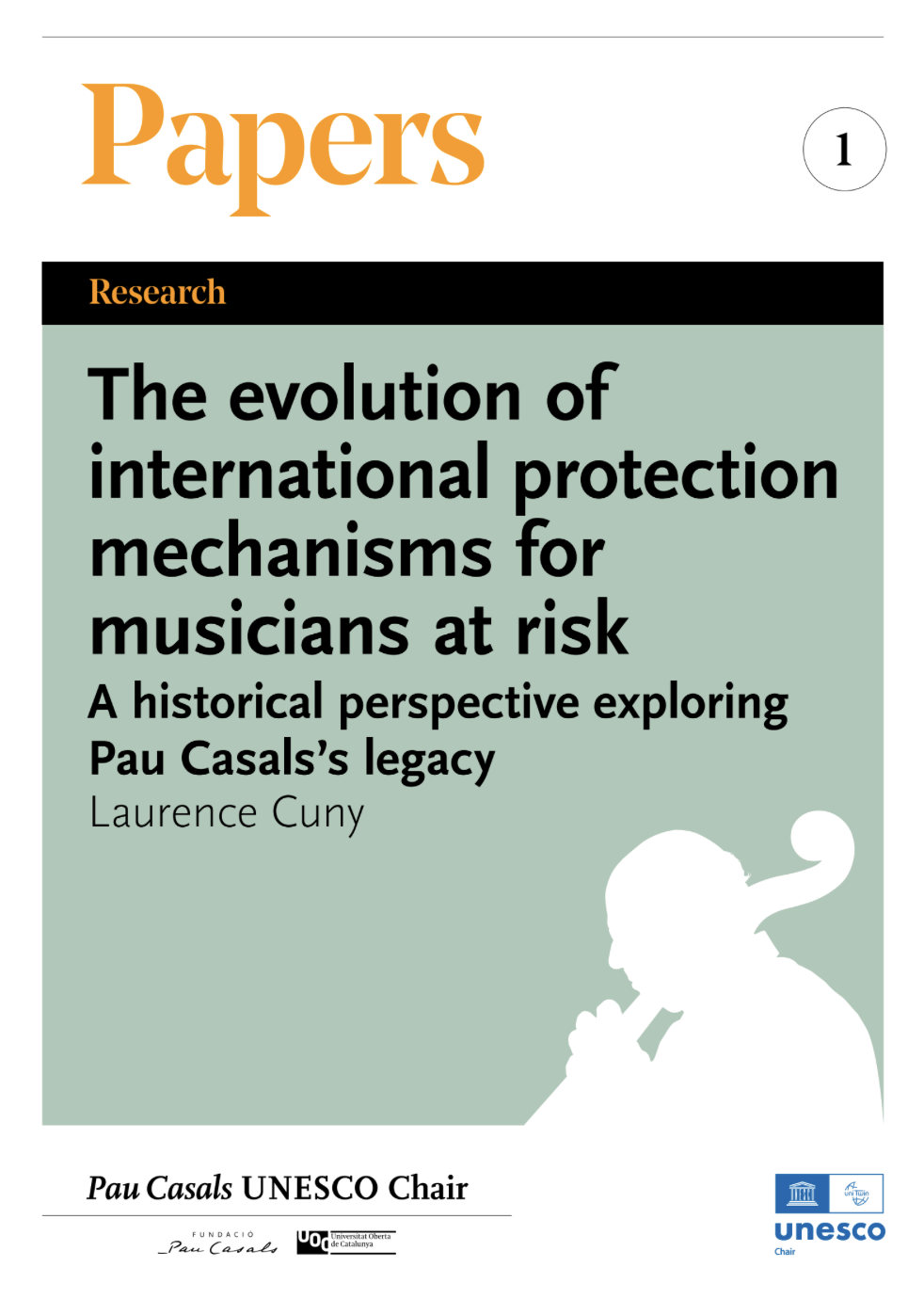In this study, published by the UNESCO Pau Casals Chair, human rights lawyer and researcher Laurence Cuny breaks down international protection mechanisms for artists at risk through a historical perspective.
This research paper, supported by the UNESCO Pau Casals Chair, a joint initiative between the Pau Casals Foundation and the Open University of Catalonia, explores the legacy of Pau Casals, renowned Spanish cellist, composer, and advocate for peace, freedom, and democracy, who was forced into exile due to war in 1939. Part I unpacks the protection of artists as a human rights matter; Part II relays the contributions of Casals as a cultural rights defender; and Part III assesses the present-day structures of protection, their gaps, and ways that the role of Casals “continues to be of value to address these gaps.”
Excerpt: Key Findings
1. The archives reveal the details of Casals’s commitment to peace and human rights and in particular his relation to organizations that are active today in protecting musicians. While Casals’s musical and humanistic legacy is well known, the details of his contribution to human rights and peace are not sufficiently known to the organizations working in the protection of artists at risk. Organizations involved in the protection of artists and musicians at risk are not familiar with the history of his exile, his support for refugees and his commitment to peace and UN values. This justifies the interest of research and opening the archives. His messages to PEN International members, his role as one of the first patrons of Amnesty International in 1961 and his role in the International Federation of Musicians created in 1948 under the auspices of UNESCO deserve to be widely shared.
2. The archives reveal the level of recognition he received, such as the Freedom House award in 1963, the UN Peace Medal, the nominations for Nobel Peace Prize, etc.
3. Casals’s position and writings about the role of music in peace-making has since been documented and confirmed in particular by Brandeis University, one of the universities that awarded him a Doctorate Honoris Causa, and the work of the Special Rapporteur in the field of cultural rights.
4. He inaugurated a tradition of cellists committed to peace and human rights who have been recognized by the United Nations, such as Rostropovich and Yo-Yo Ma, and who inspire today’s initiatives such as the project Cellists for peace in the Ukrainian conflict.
5. Some of the challenges to the protection of musicians in emergencies that existed at the time of Casals have been investigated in recent research by practitioners and academics and solutions including a UN Plan for the Safety of Artists should be further explored.

